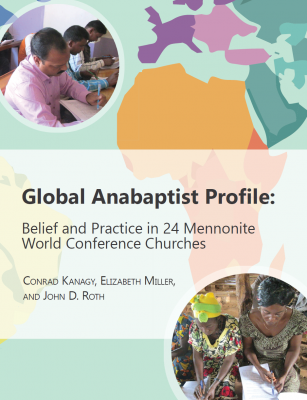Global Anabaptist Profile Completed
After more than three years of work, the Global Anabaptist Profile, a survey of 24 members conferences of Mennonite World Conference (MWC), is complete.

The ISGA published the full report of the GAP in January and delivered it into the hands of Mennonite World Conference leaders in February, where it was received with widespread interest.
Structured around Mennonite World Conference’s “Shared Convictions,” the data gathered by the Global Anabaptist Profile survey provides church leaders with basic demographic information along with data on how believers live out their commitment to be followers of Jesus Christ.
The most significant differences in results tend to highlight the contrast between MWC churches in the Global North with those in the Global South.
MWC churches in Africa, Asia, and Latin America, for example, are younger than those in Europe and North America; they tend to place a stronger emphasis on the gifts of the Holy Spirit, and their worship styles tend to be more expressive.
Yet potential fruits of the Global Anabaptist Profile go far beyond these general observations.
First, the results of the Global Anabaptist Profile provide significant insights into attitudes and practices related to the distinctive characteristics of the Anabaptist-Mennonite tradition.
On several of these distinctive emphases—e.g., concern for reconciliation and peacemaking; commitment to service; a view of the church as community—the survey revealed widespread agreement among churches in both the Global North and the Global South.
Second, the survey provides church leaders with specific information regarding their own groups.
Most of the groups participating in the Global Anabaptist Profile had never taken part in a church member profile. This was their first opportunity to have a systematic overview of basic information about members, including beliefs and practices.
Finally, and perhaps most significantly, the Global Anabaptist Profile provides a framework for informed conversations among MWC member churches about specific beliefs and practices, especially where the study has revealed similarities or differences.




